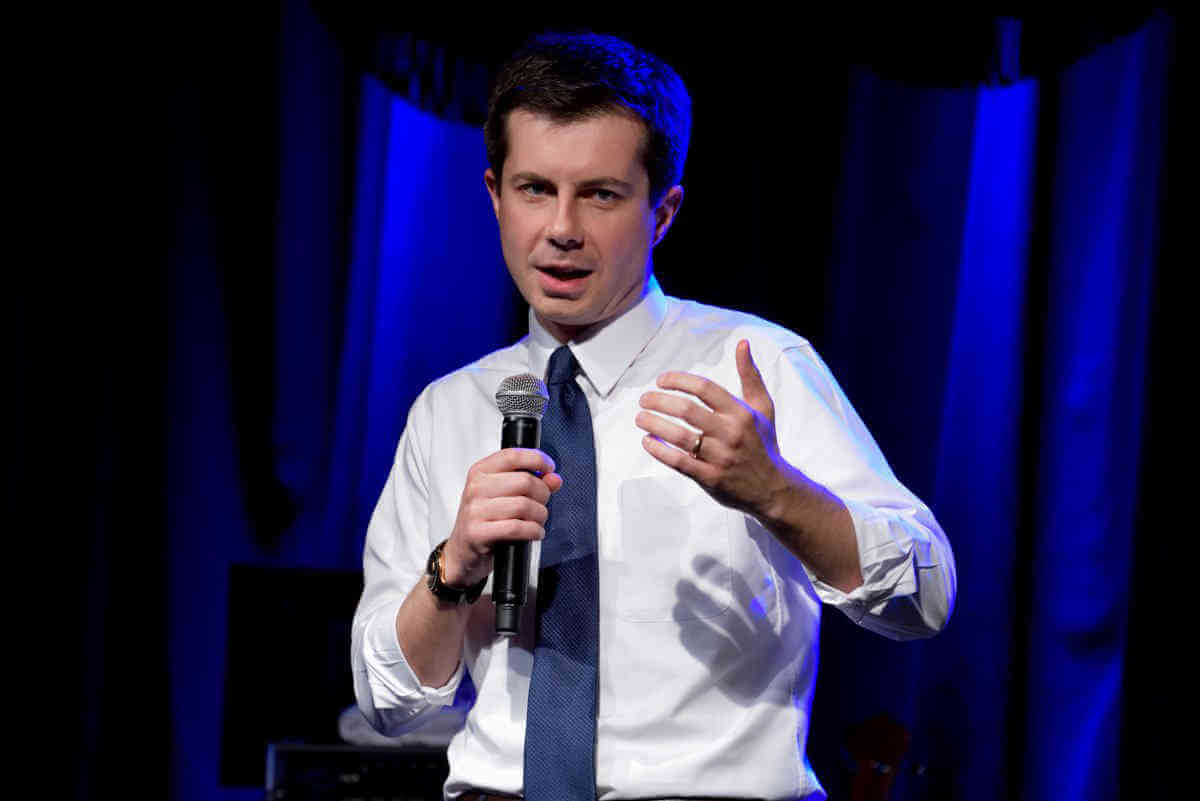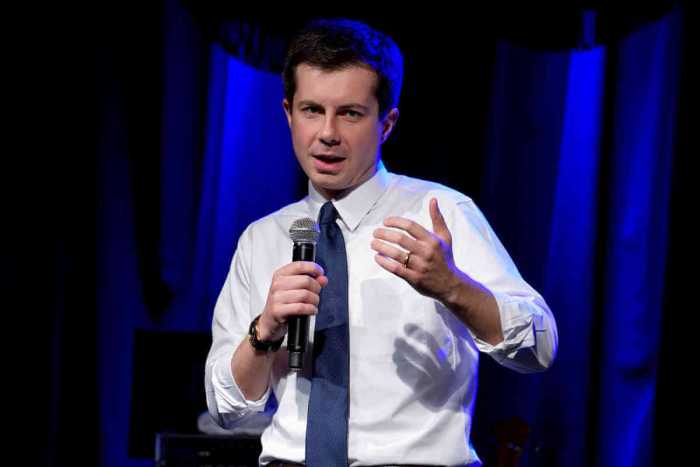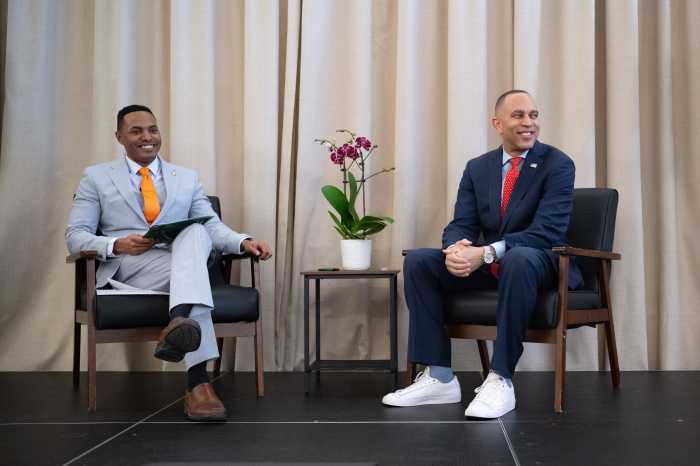Perceptions that out gay presidential candidate Pete Buttigieg, the South Bend, Indiana, mayor, has a problematic relationship with African-American voters were compounded by his campaign’s rollout of a press release and open letter in which several South Carolinians listed as backers of his Douglass Plan for Black America said they did not in fact support the plan and felt the campaign misrepresented them.
As reported by The Intercept, a press release sent out to reporters and an open letter published October 24 in the HBCU Times (which serves the Historically Black Colleges and Universities community) stated that the letter was “by Columbia City Councilmember Tameika Devine, SC Democratic Party Black Caucus Chair Johnnie Cordero, Rehoboth Baptist Pastor and State Rep. Ivory Thigpen, and more than 400 Douglass Plan endorsers.” The letter states, “Together, we endorse [Buttigieg’s] Douglass Plan for Black America, the most comprehensive roadmap for tackling systemic racism offered by a 2020 presidential candidate.”
In response, Devine told The Intercept the campaign framed the letter as if she was endorsing him.
“Clearly from the number of calls I received about my endorsement, I think the way they put it out there wasn’t clear, that it was an endorsement of the plan, and that may have been intentionally vague,” she said. “I’m political, I know how that works. I do think they probably put it out there thinking people wouldn’t read the fine print or wouldn’t look at the details or even contact the people and say, ‘Hey, you’re endorsing Mayor Pete?’”
Thigpen, a Bernie Sanders supporter, was concerned his name was listed atop the letter, telling The Intercept, “How it was rolled out was not an accurate representation of where I stand… it was clear to me, or at least I thought I made it clear to them, that I was a strong Bernie Sanders supporter — actually co-chair of the state, and I was not seeking to endorse their candidate or the plan.”
He added, “I actually had not circled back to give them a quote, so I was alarmed and very much surprised to see, particularly, the headline as such because I do think it muddies the water, I do think it was a misrepresentation, and it easily could have confused a lot of people as to where I stood.”
The headline of the article read, “More Than 400 South Carolinians Endorse Mayor Pete Buttigieg’s Douglass Plan for Black America.”
Cordero’s request to be removed from the op-ed, meanwhile, was honored when he contacted the campaign after the piece was released.
The campaign is further complicating the situation in a response to Gay City News’ questions about why some folks were listed as backers of the plan when they had not issued an endorsement of it. The campaign said it “reached out to people multiple times giving them the opportunity to review the language of the op-ed and the option to opt-out,” meaning rather than listing confirmed names the campaign listed folks without their confirmation, only removing them if they informed it to do so.
The Intercept story also indicates that those who were asked to back the plan were fed misleading information in an email they received from the campaign. That email specifically said Buttigieg was announcing “the support of over 400 Black South Carolinians for the plan.” Yet, the list of 400 people did not exclusively consist of black voters — one analysis suggested that as many as half of the names were those of white South Carolinians.
And, even as the campaign was eager to list names of those in support of the plan, it was not as eager to provide names of those who spearheaded the plan or were consulted about it. When asked by Gay City News who helped create the plan, the campaign only said on record that “we sought and received input from numerous Black policy experts and advisers.”
In yet another sign of the bungled rollout of the plan, it was revealed that the campaign used stock photos of people in Kenya on the web page outlining the Douglass Plan.
The email and press release emerged around the time a campaign memo surfaced publicly indicating that a focus group of 24 black voters were uneasy about Buttigieg’s sexual orientation. That information, reported by South Carolina’s The State on October 22, prompted controversy about whether it was leaked to excuse Buttigieg’s lack of support among African Americans in early polling in South Carolina and nationwide.
Black queer journalist George Johnson wrote an op-ed for The Advocate, saying, “So is homophobia impacting why certain Black folks are not taking to Buttigieg? I’m sure, but using that to whitewash over all his shortcomings on race is a poor straw man defense. Buttigieg continues to act like many other white politicians before him who opted to place blame on Black communities for issues they are the victims of.”

































